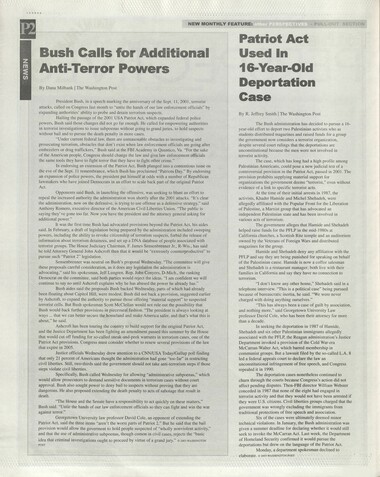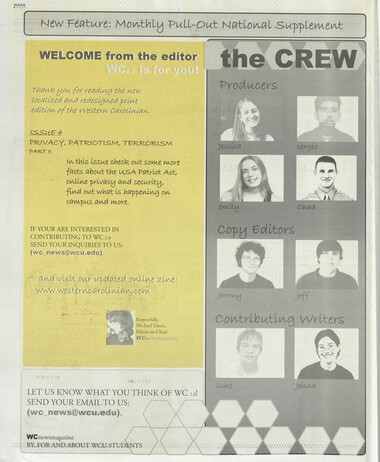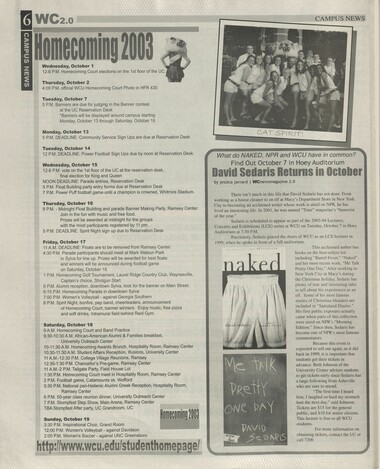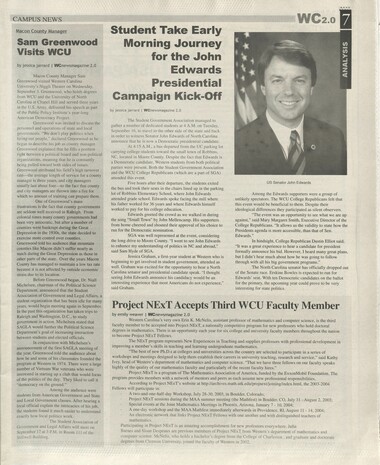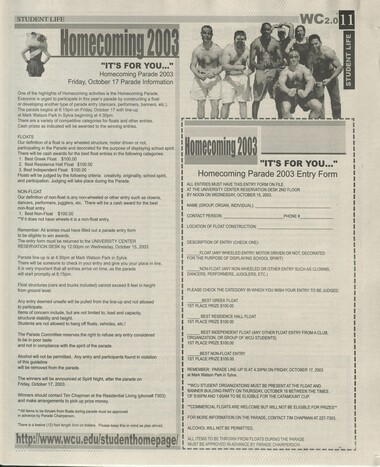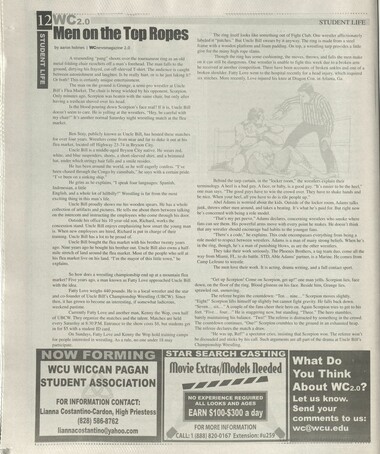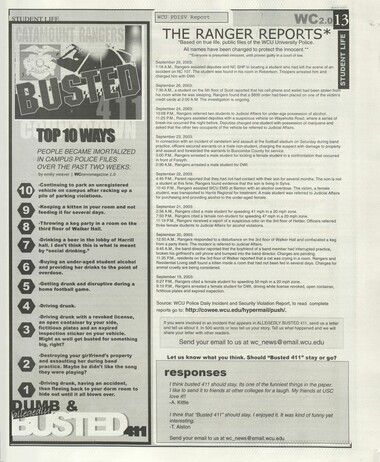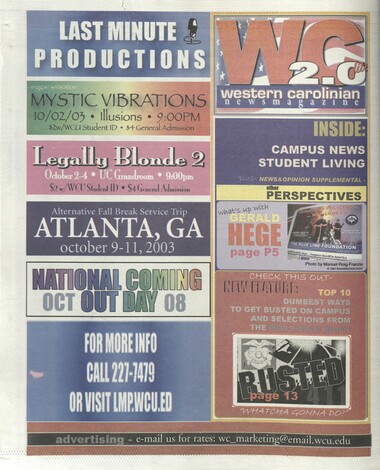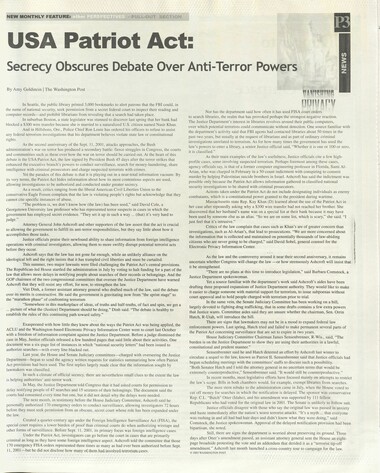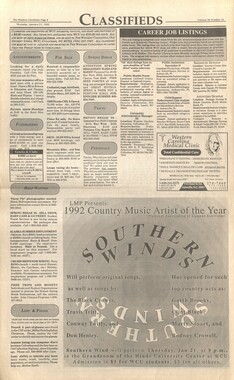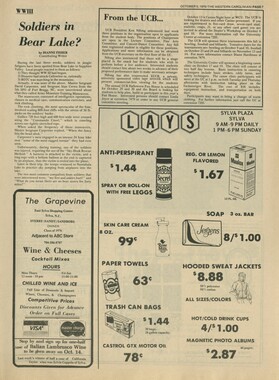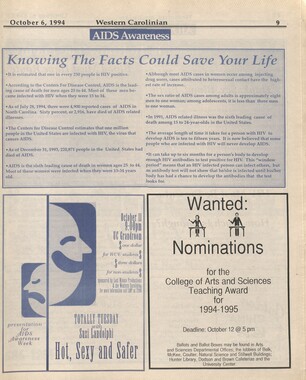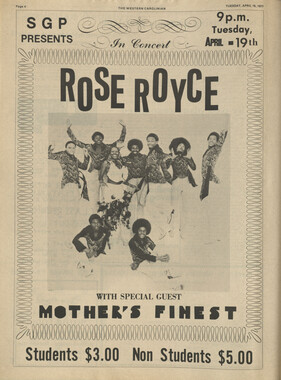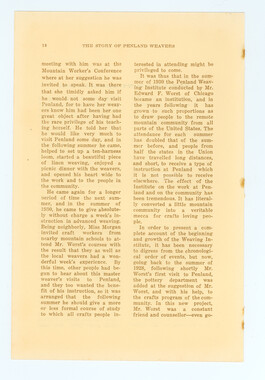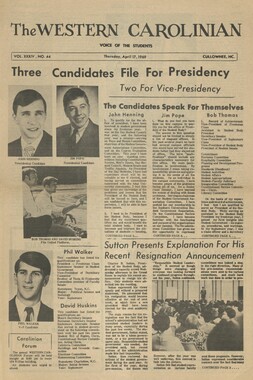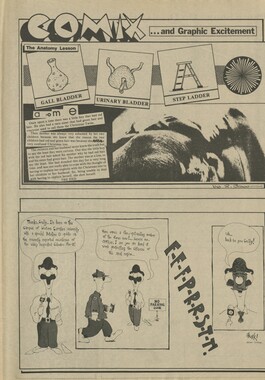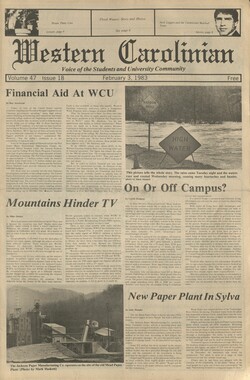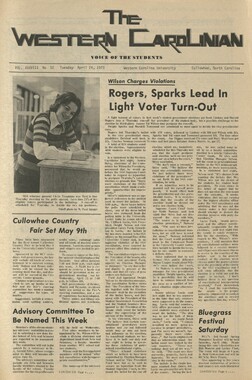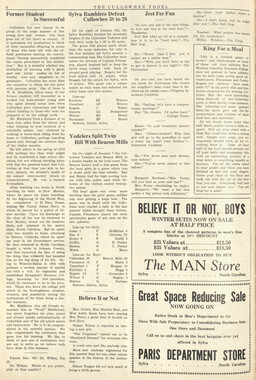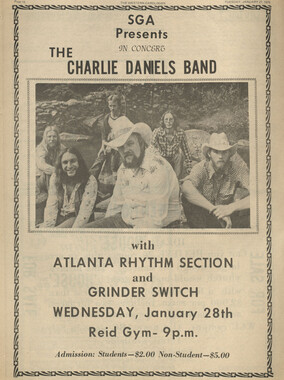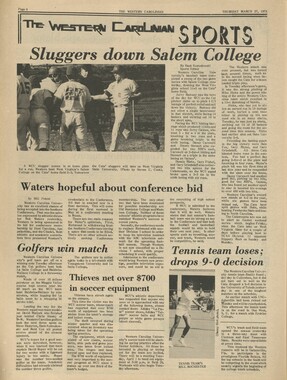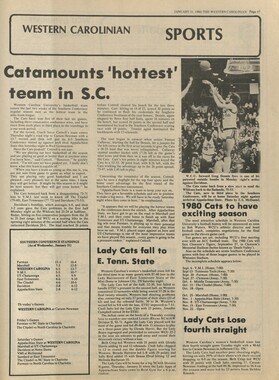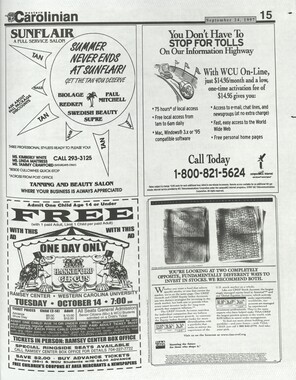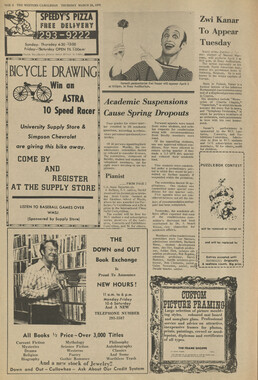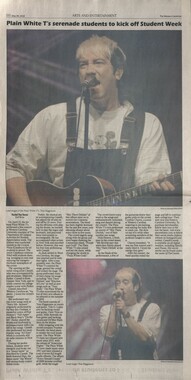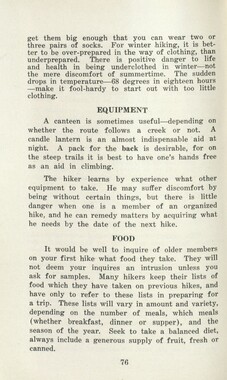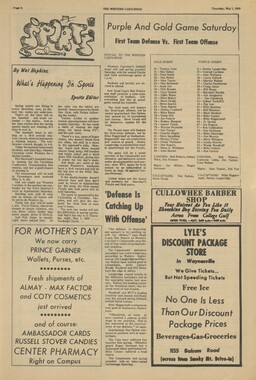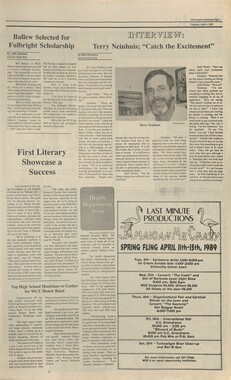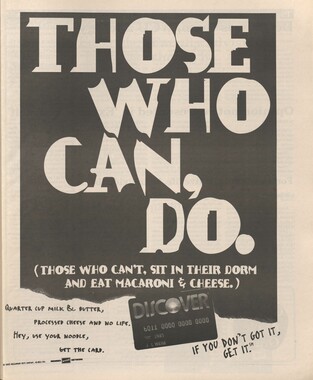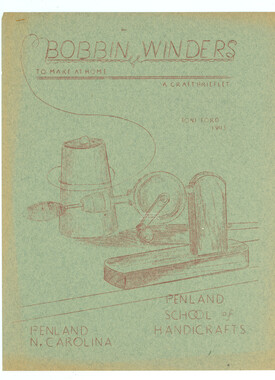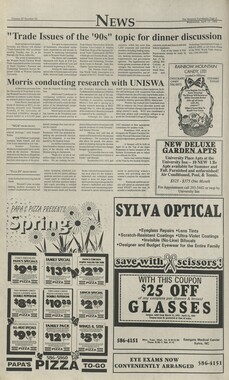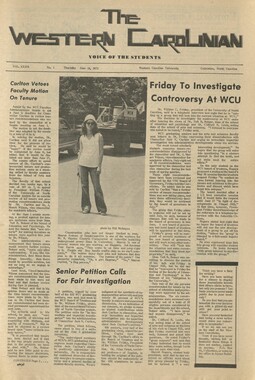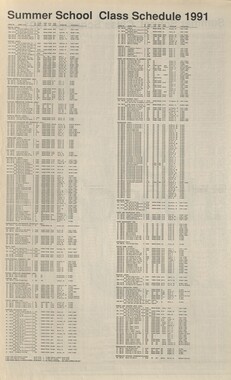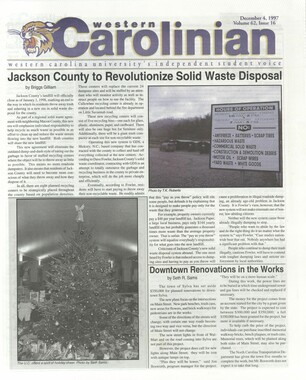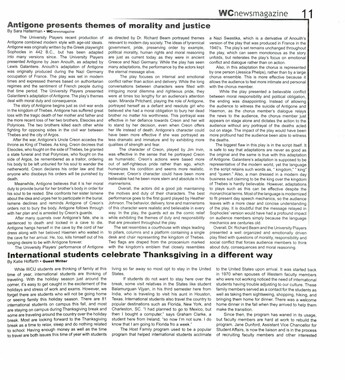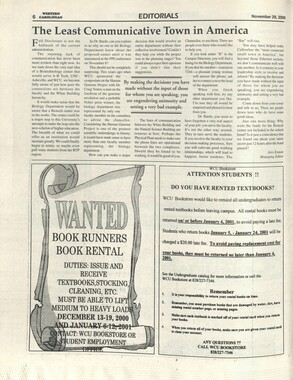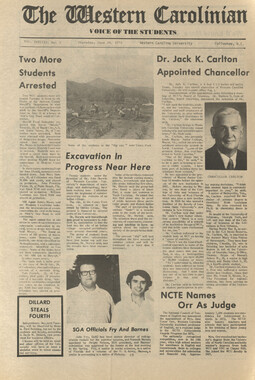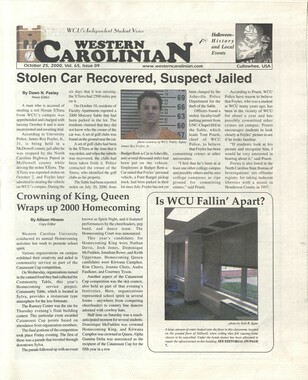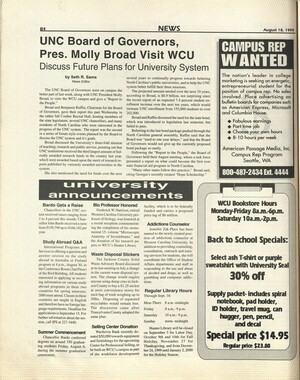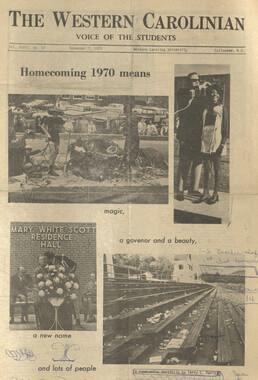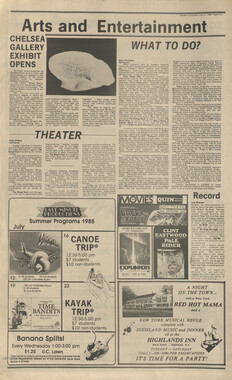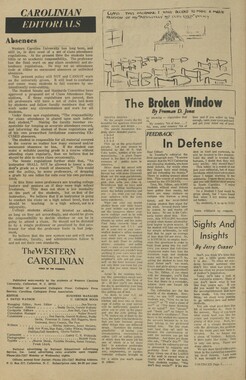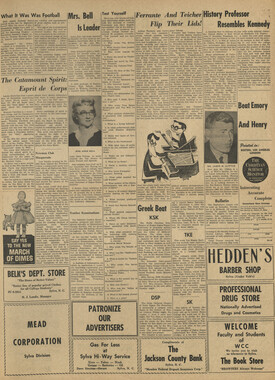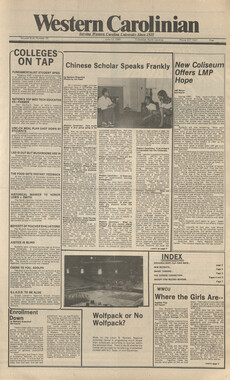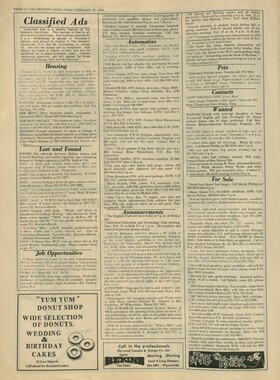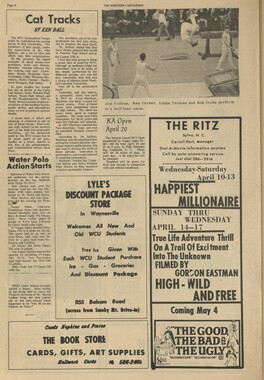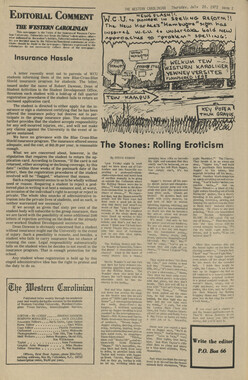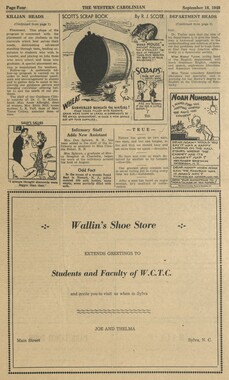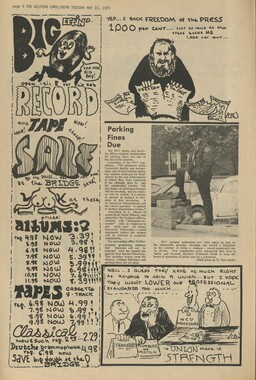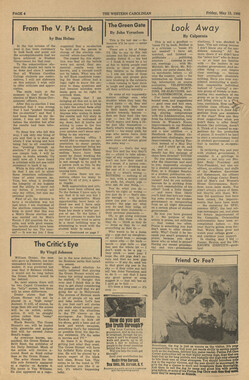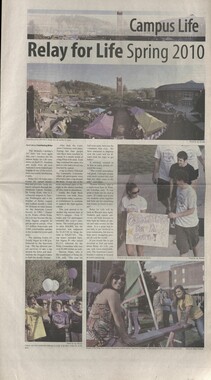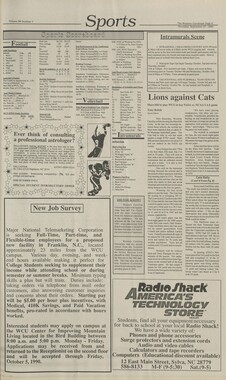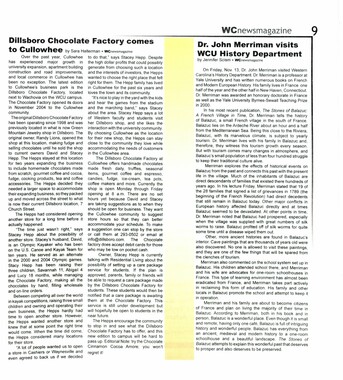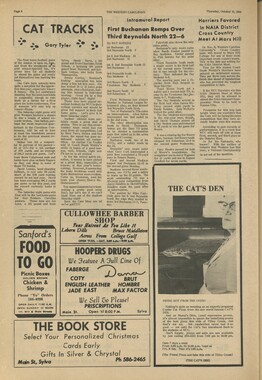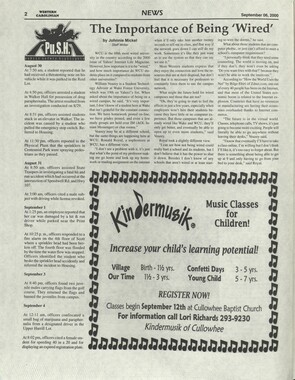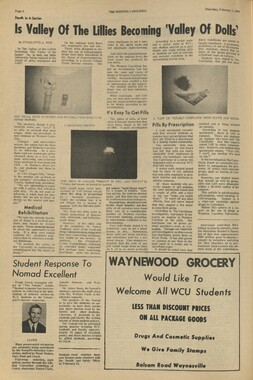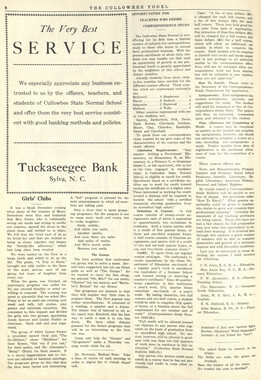Western Carolina University (21)
View all
- Canton Champion Fibre Company (2308)
- Cherokee Traditions (291)
- Civil War in Southern Appalachia (165)
- Craft Revival (1942)
- George Masa Collection (137)
- Great Smoky Mountains - A Park for America (3080)
- Highlights from Western Carolina University (422)
- Horace Kephart (998)
- Journeys Through Jackson (159)
- LGBTQIA+ Archive of Jackson County (89)
- Oral Histories of Western North Carolina (318)
- Picturing Appalachia (6617)
- Stories of Mountain Folk (413)
- Travel Western North Carolina (153)
- Western Carolina University Fine Art Museum Vitreograph Collection (129)
- Western Carolina University Herbarium (92)
- Western Carolina University: Making Memories (738)
- Western Carolina University Publications (2491)
- Western Carolina University Restricted Electronic Theses and Dissertations (146)
- Western North Carolina Regional Maps (71)
- World War II in Southern Appalachia (131)
University of North Carolina Asheville (6)
View all
- Allanstand Cottage Industries (62)
- Appalachian National Park Association (53)
- Bennett, Kelly, 1890-1974 (1463)
- Berry, Walter (76)
- Brasstown Carvers (40)
- Carver, George Washington, 1864?-1943 (26)
- Cathey, Joseph, 1803-1874 (1)
- Champion Fibre Company (233)
- Champion Paper and Fibre Company (297)
- Cherokee Indian Fair Association (16)
- Cherokee Language Program (22)
- Crowe, Amanda (40)
- Edmonston, Thomas Benton, 1842-1907 (7)
- Ensley, A. L. (Abraham Lincoln), 1865-1948 (275)
- Fromer, Irving Rhodes, 1913-1994 (70)
- George Butz (BFS 1907) (46)
- Goodrich, Frances Louisa (120)
- Grant, George Alexander, 1891-1964 (96)
- Heard, Marian Gladys (60)
- Kephart, Calvin, 1883-1969 (15)
- Kephart, Horace, 1862-1931 (313)
- Kephart, Laura, 1862-1954 (91)
- Laney, Gideon Thomas, 1889-1976 (439)
- Masa, George, 1881-1933 (61)
- McElhinney, William Julian, 1896-1953 (44)
- Niggli, Josephina, 1910-1983 (10)
- North Carolina Park Commission (105)
- Osborne, Kezia Stradley (9)
- Owens, Samuel Robert, 1918-1995 (11)
- Penland Weavers and Potters (36)
- Roberts, Vivienne (15)
- Roth, Albert, 1890-1974 (142)
- Schenck, Carl Alwin, 1868-1955 (1)
- Sherrill's Photography Studio (2565)
- Southern Highland Handicraft Guild (127)
- Southern Highlanders, Inc. (71)
- Stalcup, Jesse Bryson (46)
- Stearns, I. K. (213)
- Thompson, James Edward, 1880-1976 (226)
- United States. Indian Arts and Crafts Board (130)
- USFS (683)
- Vance, Zebulon Baird, 1830-1894 (1)
- Weaver, Zebulon, 1872-1948 (58)
- Western Carolina College (230)
- Western Carolina Teachers College (282)
- Western Carolina University (2008)
- Western Carolina University. Mountain Heritage Center (18)
- Whitman, Walt, 1819-1892 (10)
- Wilburn, Hiram Coleman, 1880-1967 (73)
- Williams, Isadora (3)
- Cain, Doreyl Ammons (0)
- Crittenden, Lorraine (0)
- Rhodes, Judy (0)
- Smith, Edward Clark (0)
- Appalachian Region, Southern (3032)
- Asheville (N.C.) (1945)
- Avery County (N.C.) (26)
- Blount County (Tenn.) (195)
- Buncombe County (N.C.) (1680)
- Cherokee County (N.C.) (283)
- Clay County (N.C.) (556)
- Graham County (N.C.) (238)
- Great Smoky Mountains National Park (N.C. and Tenn.) (535)
- Haywood County (N.C.) (3573)
- Henderson County (N.C.) (70)
- Jackson County (N.C.) (4925)
- Knox County (Tenn.) (35)
- Knoxville (Tenn.) (13)
- Lake Santeetlah (N.C.) (10)
- Macon County (N.C.) (421)
- Madison County (N.C.) (216)
- McDowell County (N.C.) (39)
- Mitchell County (N.C.) (135)
- Polk County (N.C.) (35)
- Qualla Boundary (982)
- Rutherford County (N.C.) (78)
- Swain County (N.C.) (2185)
- Transylvania County (N.C.) (270)
- Watauga County (N.C.) (12)
- Waynesville (N.C.) (86)
- Yancey County (N.C.) (72)
- Aerial Photographs (3)
- Aerial Views (60)
- Albums (books) (4)
- Articles (1)
- Artifacts (object Genre) (228)
- Bibliographies (1)
- Biography (general Genre) (2)
- Cards (information Artifacts) (38)
- Clippings (information Artifacts) (193)
- Copybooks (instructional Materials) (3)
- Crafts (art Genres) (622)
- Depictions (visual Works) (21)
- Design Drawings (1)
- Digital Moving Image Formats (2)
- Drawings (visual Works) (185)
- Envelopes (115)
- Exhibitions (events) (1)
- Facsimiles (reproductions) (1)
- Fiction (general Genre) (4)
- Financial Records (12)
- Fliers (printed Matter) (67)
- Glass Plate Negatives (381)
- Guidebooks (2)
- Internegatives (10)
- Interviews (823)
- Land Surveys (102)
- Letters (correspondence) (1070)
- Manuscripts (documents) (618)
- Maps (documents) (177)
- Memorandums (25)
- Minutes (administrative Records) (59)
- Negatives (photographs) (6090)
- Newsletters (1290)
- Newspapers (2)
- Notebooks (8)
- Occupation Currency (1)
- Paintings (visual Works) (1)
- Pen And Ink Drawings (1)
- Periodicals (194)
- Personal Narratives (10)
- Photographs (12977)
- Plans (maps) (1)
- Poetry (6)
- Portraits (4568)
- Postcards (329)
- Programs (documents) (181)
- Publications (documents) (2444)
- Questionnaires (65)
- Relief Prints (26)
- Sayings (literary Genre) (1)
- Scrapbooks (282)
- Sheet Music (2)
- Slides (photographs) (402)
- Songs (musical Compositions) (2)
- Sound Recordings (802)
- Specimens (92)
- Speeches (documents) (18)
- Tintypes (photographs) (8)
- Transcripts (329)
- Text Messages (0)
- A.L. Ensley Collection (275)
- Appalachian Industrial School Records (7)
- Appalachian National Park Association Records (336)
- Axley-Meroney Collection (2)
- Bayard Wootten Photograph Collection (20)
- Bethel Rural Community Organization Collection (7)
- Blumer Collection (5)
- C.W. Slagle Collection (20)
- Canton Area Historical Museum (2110)
- Carlos C. Campbell Collection (462)
- Cataloochee History Project (64)
- Cherokee Studies Collection (4)
- Daisy Dame Photograph Album (5)
- Daniel Boone VI Collection (1)
- Doris Ulmann Photograph Collection (112)
- Elizabeth H. Lasley Collection (1)
- Elizabeth Woolworth Szold Fleharty Collection (4)
- Frank Fry Collection (95)
- George Masa Collection (173)
- Gideon Laney Collection (452)
- Hazel Scarborough Collection (2)
- Hiram C. Wilburn Papers (28)
- Historic Photographs Collection (236)
- Horace Kephart Collection (861)
- Humbard Collection (33)
- Hunter and Weaver Families Collection (1)
- I. D. Blumenthal Collection (4)
- Isadora Williams Collection (4)
- Jesse Bryson Stalcup Collection (47)
- Jim Thompson Collection (224)
- John B. Battle Collection (7)
- John C. Campbell Folk School Records (80)
- John Parris Collection (6)
- Judaculla Rock project (2)
- Kelly Bennett Collection (1482)
- Love Family Papers (11)
- Major Wiley Parris Civil War Letters (3)
- Map Collection (12)
- McFee-Misemer Civil War Letters (34)
- Mountain Heritage Center Collection (4)
- Norburn - Robertson - Thomson Families Collection (44)
- Pauline Hood Collection (7)
- Pre-Guild Collection (2)
- Qualla Arts and Crafts Mutual Collection (12)
- R.A. Romanes Collection (681)
- Rosser H. Taylor Collection (1)
- Samuel Robert Owens Collection (94)
- Sara Madison Collection (144)
- Sherrill Studio Photo Collection (2558)
- Smoky Mountains Hiking Club Collection (616)
- Stories of Mountain Folk - Radio Programs (374)
- The Reporter, Western Carolina University (510)
- Venoy and Elizabeth Reed Collection (16)
- WCU Gender and Sexuality Oral History Project (36)
- WCU Mountain Heritage Center Oral Histories (25)
- WCU Oral History Collection - Mountain People, Mountain Lives (71)
- WCU Students Newspapers Collection (1923)
- Western North Carolina Tomorrow Black Oral History Project (69)
- William Williams Stringfield Collection (2)
- Zebulon Weaver Collection (109)
- African Americans (390)
- Appalachian Trail (35)
- Artisans (521)
- Cherokee art (84)
- Cherokee artists -- North Carolina (10)
- Cherokee language (21)
- Cherokee pottery (101)
- Cherokee women (208)
- Church buildings (190)
- Civilian Conservation Corps (U.S.) (111)
- College student newspapers and periodicals (2012)
- Dams (108)
- Dance (1023)
- Education (222)
- Floods (63)
- Folk music (1015)
- Forced removal, 1813-1903 (2)
- Forest conservation (220)
- Forests and forestry (1198)
- Gender nonconformity (4)
- Great Smoky Mountains National Park (N.C. and Tenn.) (181)
- Hunting (47)
- Landscape photography (25)
- Logging (122)
- Maps (83)
- Mines and mineral resources (9)
- North Carolina -- Maps (18)
- Paper industry (38)
- Postcards (255)
- Pottery (135)
- Railroad trains (72)
- Rural electrification -- North Carolina, Western (3)
- School integration -- Southern States (2)
- Segregation -- North Carolina, Western (5)
- Slavery (5)
- Sports (452)
- Storytelling (243)
- Waterfalls -- Great Smoky Mountains (N.C. and Tenn.) (66)
- Weaving -- Appalachian Region, Southern (280)
- Wood-carving -- Appalachian Region, Southern (328)
- World War, 1939-1945 (174)
Western Carolinian Volume 68 Number 04
Item
Item’s are ‘child’ level descriptions to ‘parent’ objects, (e.g. one page of a whole book).
-
-
NEW MONTHLY FEATURE: I Bush Calls for Additional Anti-Terror Powers By Dana Milbank I The Washington Post President Bush, in a speech marking the anniversary of the Sept, 11, 2001, terrorist attacks, called on Congress last month to "untie the hands of our law enforcement officials" by expanding authorities' ability to probe and detain terrorism suspects. Hailing the passage of the 2001 USA Patriot Act, which expanded federal police powers, Bush said those changes did not go far enough. He called for empowering authorities in terrorist investigations to issue subpoenas without going to grand juries, to hold suspects without bail and to pursue the death penalty in more cases. "Under current federal law, there are unreasonable obstacles to investigating and prosecuting terrorism, obstacles that don't exist when law enforcement officials are going after embezzlers or drug traffickers," Bush said at the FBI Academy in Quantico, 'Va. "For the sake of the American people, Congress should change the law and give law enforcement officials the same tools they have to fight terror that they have to fight other crime." In endorsing an extension of the Patriot Act, Bush plunged into a contentious issue on the -eve of the Sept; I I remembrance, which Bush has. proclaimed '€Patriots Day." By endorsing an expansion of police powers, the president put himself at odds with a number of Republican lawmakers who have joined Democrats in an effort to scale back part of the original Patriot Opponents said Bush, in launching the offensive, was seeking to blunt an effort to repeal the increased authority the administration won shortly after the 2001 attacks. "It's clear the administration, now on the defensive, is trying to use offense as a defensive strategy," said Anthony Romero, executive director of the American Civil Liberties Union. *'The public is saying they've gone too far. Now you have the president and the attorney general asking for additional powers'S It was the first time Bush had advocated provisions beyond the Patriot Act, his aides said. In February, a draft Of legislation being prepared by the administration included sweeping powers, including the ability to revoke citizenship of terrorism suspects, 'forbid the release of information about terrorism detainees, and set up a DNA database of people associated with terrorist groups. The House Judiciary Chairman, E James Sensenbrenner Jr., R-Wis„ has said he told Attorney General John Ashcroft then that it would be "extremely counterproductive" to pursue such g 'Patriot 2" 'legislation, Sensenbrenner was neutral on Bush's proposal Wednesday, "The committee will give these proposals careful consideration, as it does any legislation the administration is advocating," said his spokesman, Jeff Lungren. Rep. John Conyers, D-Mich., the ranking Democrat on the committee, said both parties would reject the ideas, '€1 am confident we will continue to say no until Ashcroft explains why he has abused the power he already has." Bush aides said the proposals Bush backed Wednesday, parts of which had already been floating about capitol Hill, were modest. Bush did not back a provision, suggested earlier by Ashcroft, to expand the authority to pursue those offering "material support" to suspected terrorist cells. But Bush spokesman Scott McClellan would not rule out the possibility that Bush would back further provisions in piecemeal fashion. "The president is always looking at ways that we can better secure the homeland and make America safer, and that's what this is about," he said. Ashcroft has been touring the country to build support for the original Patriot Act, and the Justice Department has been fighting an amendment passed this summer by the House that would cut off fundihg for so-called sneak-and-peek warrants in terrorism cases, one of the Patriot Act provisions. Congress must consider whether to renew several provisions of the law that expire in 2005. Justice officials Wednesday drew attention to a CNN/USA Today/Gallup poll finding that only 21 percent of Americans thought the administration had gone "too far" in restricting civil liberties„ Still, two-thirds said the government should not take anti-terrorism steps if those steps violate civil liberties. Specifically, Bush called Wednesday for allowing "administrative subpoenas," which would allow prosecutors to demand sensitive documents in terrorism cases without court approval. Bush .also sought power to deny bail to suspects without proving that they are dangerous, He also proposed extending the death penalty to acts of sabotage that result in death. "'The House and the Senate have a responsibility to act quickly on these matters," Bush said. "Untie the hands of our law enforcement officials so they can fight and win the war against terror." Georgetown University law professor David Cole, an opponent of extending the Patriot Act, said the three items "aren't the worst parts Of Patriot 2." But he said that the bail provision would allow the goverment to hold people suspected Of "wholly nonviolent activity," and that the use -of administrative subpoenas, though comon in civil cases, rejects the "basic idea that criminal investigations ought to proceed by virtue of a grand jury," 0 2003 WASHINGTON POST Patriot Act Used In 16-Year-Old Deportation Case By R. Jeffrey Smith I The Washington Post The Bush administration has decided to pursue a 16- year-old effort to deport two Palestinian activists who as students distributed magazines and raised funds for a group the government now considers a terrorist organization, despite several court rulings that the deportations are unconstitutional because the men were not involved in terrorist activity. The case, which has long had a high profile among Palestinian Americans, could pose a new judicial test of a controversial provision in the Patriot Act, passed in 2001. The provision prohibits supplying material support for organizations the government deems "terrorist," even without evidence of a link to specific terrorist acts. At the time of their initial arrests in 1987, the activists, Khader Hamide and Michel Shehadeh, were allegedly affiliated with the Popular Front for the Liberation of Palestine, a Marxist group that has advocated an independent Palestinian state and has been involved in various acts of terrorism. The government alleges that Hamide and Shehadeh helped raise funds for the PFLP in the mid-1980s at California churches, a Scottish Rite temple and an auditorium owned by the Veterans of Foreign Wars and distributed magazines for the group. Hamide and Shehadeh deny any affiliation with the PFLP and say they are being punished for speaking on behalf of the Palestinian cause. Hamide is now a coffee salesman and Shehadeh is a restaurant manager; both live with their families in California and say they have no connection to terrorism. "I don't know any other home," Shehadeh said in a telephone interview. "This is a political case" being pursued because of bureaucratic inertia, he said. "We were never charged with doing anything ourselves." "This has always been a case of guilt by association, and nothing more," said Georgetown University Law professor David Cole, who has been their attorney for more than a decade. In seeking the deportation in 1987 of Hamide, Shehadeh and six other Palestinian immigrants allegedly associated with the PFLP, the Reagan administration's Justice Department invoked a provision of the Cold War-era McCarran-Walter Act, which barred membership in communist groups. But a lawsuit filed by the so-called L.A. 8 led a federal appeals court to declare the law an unconstitutional infringement of free speech, and Congress repealed it in 1990. The deportation cases nonetheless continued to churn through the courts because Congress's action did not affect pending disputes, Then-FBI director William Webster conceded in 1987 that none of the eight had engaged in terrorist activity and that they would not have been arrested if they were U.S. citizens. Civil liberties groups charged that the government was wrongly excluding the immigrants from traditional protections of free speech and association. Six of the cases were ultimately deemed minor technical violations. In January, the Bush administration was given a summer deadline for declaring whether it would still seek to invoke the McCarran Act. Last week, the Department of Homeland Security confirmed it would pursue the deportations but drew on the language of the Patriot Act, Monday, a department spokesman declined to elaborate. 0 2003WASHINGTON
Object
Object’s are ‘parent’ level descriptions to ‘children’ items, (e.g. a book with pages).
-
The Western Carolinian is Western Carolina University's student-run newspaper. The paper was published as the Cullowhee Yodel from 1924 to 1931 before changing its name to The Western Carolinian in 1933.
-
